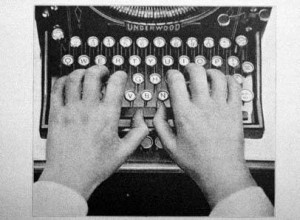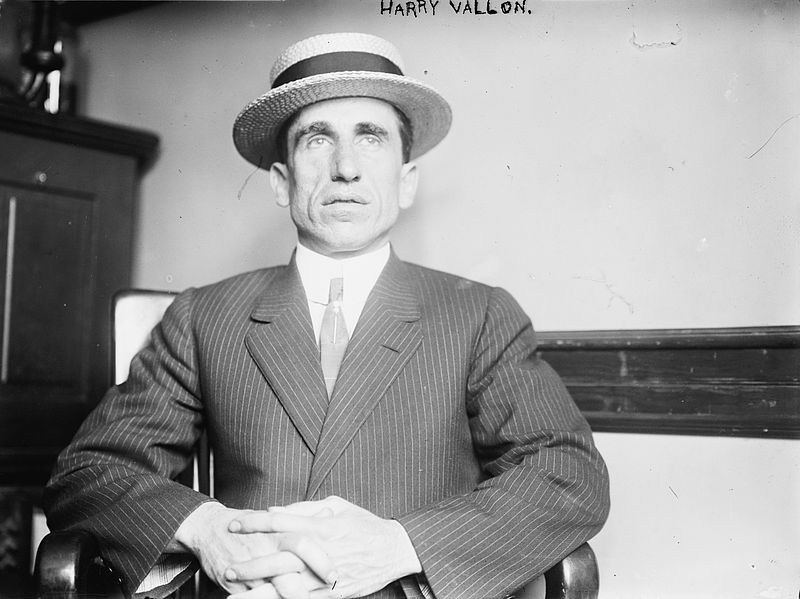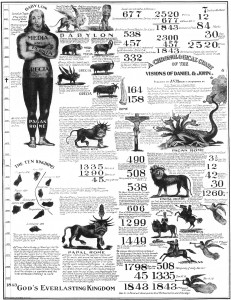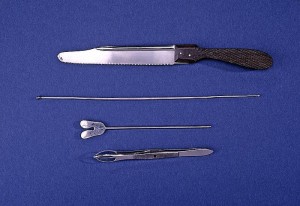Kentucky Fried Chicken was oddly allowed to briefly operate two restaurants in Russia during the frost of the Cold War in the 1960s.
You are currently browsing the yearly archive for 2011.
From “The Elephant in the Green Room,” Gabriel Sherman’s just-published New York magazine piece about FOX News honcho Roger Ailes, a ghastly man whose face looks as if it should be attached the hull of a ship:
“So it must have been disturbing to Ailes when the wheels started to come off Fox’s presidential-circus caravan. (Coincidentally or not, this happened more or less when Donald Trump jumped on: ‘They like me on the network,’ Trump told me. ‘I get ratings.’) The problem wasn’t that ratings had been slipping that much—Beck’s show declined by 30 percent from record highs, but the ratings were still nearly double those from before he joined the network. It was that, with an actual presidential election on the horizon, the Fox candidates’ poll numbers remain dismally low (Sarah Palin is polling 12 percent; Newt Gingrich and Rick Santorum, 10 percent and 2 percent, respectively). Ailes’s candidates-in- waiting were coming up small. And, for all his programming genius, he was more interested in a real narrative than a television narrative—he wanted to elect a president. All he had to do was watch Fox’s May 5 debate in South Carolina to see what a mess the field was—a mess partly created by the loudmouths he’d given airtime to and a tea party he’d nurtured. And, not incidentally, a strong Republican candidate would be good for his business, too. A few months ago, Ailes called Chris Christie and encouraged him to jump into the race. Last summer, he’d invited Christie to dinner at his upstate compound along with Rush Limbaugh, and like much of the GOP Establishment, he fell hard for Christie, who nevertheless politely turned down Ailes’s calls to run. Ailes had also hoped that David Petraeus would run for president, but Petraeus too has decided to sit this election out, choosing to stay on the counterterrorism front lines as the head of Barack Obama’s CIA. The truth is, for all the antics that often appear on his network, there is a seriousness that underlies Ailes’s own politics. He still speaks almost daily with George H. W. Bush, one of the GOP’s last great moderates, and a war hero, which especially impresses Ailes.
All the 2012 candidates know that Ailes is a crucial constituency. ‘You can’t run for the Republican nomination without talking to Roger,’ one GOPer told me. ‘Every single candidate has consulted with Roger.’ But he hasn’t found any of them, including the adults in the room—Jon Huntsman, Mitch Daniels, Mitt Romney—compelling. ‘He finds flaws in every one,’ says a person familiar with his thinking.
‘He thinks things are going in a bad direction,’ another Republican close to Ailes told me. ‘Roger is worried about the future of the country. He thinks the election of Obama is a disaster. He thinks Palin is an idiot. He thinks she’s stupid. He helped boost her up. People like Sarah Palin haven’t elevated the conservative movement.'”
Tags: Domald Trump, Gabriel Sherman, Glenn Beck, Roger Ailes
An experimental 17-minute BBC version. Better than Cronenberg’s 1996 adaptation, I think.
From a piece about Ballard in the Los Angeles Times by David L. Ulin: “If J.G. Ballard — the visionary British novelist who died Sunday of prostate cancer at age 78 — ends up being remembered, it will likely be as a science fiction writer who aspired to use genre as a vehicle for art. That’s true enough, in a certain small-bore manner, but it’s ultimately reductive, a way of categorizing Ballard that his entire career stood against.
A member of the New Wave science fiction movement of the 1960s, Ballard started out writing proto-environmental thrillers that highlighted the prescience of his imagination: The Wind From Nowhere posits a world-wide windstorm that becomes apocalyptic, while The Drowned World is about a planet swamped by risen sIt was really in the 1970s, however, that Ballard found his voice as a writer, focusing on the dangers of mechanization and socialization, the tension between the veneer of civilization and the animal brutality it sought to conceal. “

"Everybody has seen these little waifs at watering places, on cars, steamers, and to every crowd of people where there was a chance to earn a few pennies." (Image by Lewis Hine.)
The August 21, 1873 edition of the Brooklyn Daily Eagle published a disturbing story about a child-smuggling ring that supplied New York City ringleaders with waifs to play music on the street and earn money. An excerpt:
“The examination of the case of Vincenzo Motto, of 45 Crosby Street, New York, who is charged with violation of the Civil Rights bill by kidnapping Italian children, bringing them to this country and compelling them to earn a living for him by performing on instruments in the streets, was resumed yesterday before Commissioner Osborn, in the United States District Court, New York. Everybody has seen these little waifs at watering places, on cars, steamers, and to every crowd of people where there was a chance to earn a few pennies by rasping “Old Dog Tray” and kindred tunes out of a cracked violin in the most persistent manner. It is only recently, however, that public attention has been called to the secret history of their lives here and the cause of their presence.
Some time since one of these little musicians ran away from the ‘padrone’ with whom he lived, and by whom he was brought to the country, and from the statements made by him to authorities, it appeared that all these little musicians were owned by a company in New York. They had agents in Italy, who purchased the children from their parents, and when that was not possible, kidnapped them, and sent them out here consigned to some padrone who was a member of the fraternity, and who owned when as much as any slaveholder ever owned his negro.
The unfortunate children, who were subjected by the lazy padrones in order to make them return so much money every day, excited a storm of public indignation, and it is expected that the present proceedings will result in breaking up the whole thing and emancipating hundreds of these unfortunate little fellows, from their brutal taskmasters.
In the examination yesterday, the principal witness was the boy Joseph, one of the complainants against Motto, and his testimony which shows the working of the system was as follows:
I am twelve years old; I came to the United States three years ago, and have been here during that time; I came to this country with my master Vincenzo Motto; I used to live at Cavalli, Italy; the defendant is here (points him out); I left Naples to come to this country; I first met the defendant at my mother’s house; he said to me, ‘You come to my house, and I will let you come back in the evening’; he made me walk all night to Naples, and there I was put on board the steamer, and I came to New York with the defendant; as soon as we got to New York I was taken to Crosby Street, and he kept me one day at the house; the defendant brought three more boys with me; after the first day he sent me out in the streets with other children to play the triangle; he told me to stick with the other children; he afterwards told me to bring home money; he told me this the next week; he sent me out as early as seven o’clock in the morning; he gave me bread for breakfast and told me to come back with the other children at night; I never come home without bringing money; Motto gave me bread and cheese; he did not give me my clothes; he was kind to me at first; then he beat me in the morning and in the evening; he beat me and kicked me; he tied me up with a big cord and kept me in the cellar all day; he bit me; he bit my ear one year ago because I did not bring home much money; I left my master one year ago because I had no money to bring home; I went to sleep in the cars at the depot; a lady, Mrs. McMonoho, now present, took care of me; I do not remember my home.”
Tags: Commissioner Osborn, Lewis Hine, Mrs. McMonoho, Stephen Foster, Vincenzo Motto
Douglas Coupland talking about the allure and repulsion he feels for plastics.
More Douglas Coupland posts:
On May 20, 1865, chronically ill Charles Darwin recorded the symptoms of his terrible stomach problems, which may been result of something called Cyclic Vomiting Syndrome:
“For 25 years extreme spasmodic daily & nightly flatulence: occasional vomiting, on two occasions prolonged during months. Vomiting preceded by shivering (hysterical crying) dying sensations (or half-faint). . ringing in ears, treading on air and vision. (focus and black dots) . . . (nervousness when E. [Emma] leaves me)—What I vomit intensely acid slimy (sometimes bitter) consider teeth.” (Thanks Why Evolution Is True.)
Tags: Charles Darwin
Monsanto’s House of the Future was displayed at Disneyland from 1957-67.
Save us from the Rapture! (Timesquare)
My friend and I waited until 6pm in our room at the Four Seasons, and after 15 minutes and no rapture we decided to go to timesquare… long story short Jesus is here and he is trying to take my friend away!! Please help me fight off Jesus and his hoard of Zombies!!! I’m at the timesquare playing tug of war with Jesus over my friend, Jesus says I’m next!!!! Please come down and help!! You cant miss it in the middle of time square! I will forever be greatful for your help!! Hurry!!!!!!
Jack Schmitt taking a tumble during the final manned lunar mission in 1972.
Tags: Jack Schmitt
Some search-engine keyphrases bringing traffic to Afflictor this week:

Afflictor: Delighting our two biggest fans--Lorna and Peggy--since 2009. (Image by christian razukas.)
- Classic Film: Salesman (1968).
- Old Print Articles: Boys shoot craps, punch each other in front of church (1902) + Brooklyn bone collector shares trade secrets (1877) + Vagrant woman insulted profusely (1849).
- Classic Photographs: Frances Densmore meets Mountain Chief (1916) + Women at the Waldorf track the Stock Market (1918).
- Featured Videos: Tom Snyder interviews Alfred Hitchcock (1973) + Hunter S. Thompson making his magic (1978) + Marlin Perkins hosting Wild Kingdom + Jon Stewart interviews George Carlin (1987) + Sagan, Hawking and Clarke tackle the big issues (1988) + Totally courteous gun enthusiast + Rare footage of blind, avant-garde “Viking” composer + Robot climbs tree + Soccer-playing robots + British troops take LSD + Richard Feynman (and his ego) remembered + Pop Art sculptor Billy Apple is profiled (1966) + Mind-blowing puppetry + The McGurk Effect explained,
- Recently Posted on NYC”s Craigslist: I’m unaware that I want to post a personal ad + We may have watched Ghostbusters too many times + Give me all your cool stuff before the world ends + Give me all your pennies + Do you know a good loan shark? + I would like my work displayed on the silver screen.
- Douglas Coupland adds his two cents about Marshall McLuhan.
- Ray Bradbury wanted corporations to turn cities into malls (1996).
- Wikipedia is the best encyclopedia in the English language.
- Yet again, Katie Couric shows how dumb Sarah Palin is.
- Oriana Fallaci asserts how stupid Muammar el-Qaddafi is (2003).
- Hunter S. Thompson investigates Los Angeles overpopulation (1965).
- Exploring the act of dying in contemporary Los Angeles.
- Laurel and Hardy hang out for the final time (1956).
- Jimmy Lai creates odd animations of tabloid news stories.
- William Gibson provides a sharp take on the Web (1997).
- Rupert Murdoch rose to prominence as New York rebounded in the 1970s.
- Robert D. Kaplan envisioned a world with few borders in 1994.
- The Rapture didn’t arrive in 1844, either.
- Why doctors order so few autopsies.
- The life and times of an Asperger patient.
- Americans trying to revive the culture of manufacturing.
- Steven Hollinger sculpts found and often unusual materials.
- An attempt to create a digital coin of the realm.
- A philippic about the downside of personalization and search filters.
- Life in London from 1500-1800.
- Champion marathoner commits suicide in Kenya.
- Some guy took too much gout medicine in 1877.
- This week’s Afflictor keyphrase searches.
Need loan shark – $2000
I need a loan shark immediately. I need $2000-$3000.
I can repay this back within a month or two.
1. I work a full time job that pays me $1600 every 2 weeks – I can take from that (when it is not going to rent) to pay it back
2. I have a 2nd job that I am doing that pays me $1300 every 2 weeks that I just started. I can pay from that as well
3. I have this $5000 owed to me by a company who has said they will pay me at some point. This is for work already done and owed to me. It is a bunch of investment professionals who want to pay me once their company is funded in the next month.
4. My soon to be ex husband owes me $30,000 as part of our legal separation and soon to be final divorce settlement and he is paying me every couple of months $5000. He has made payments in the past.
I have a lot of money tied up and just need a loan of 2000-3000 so that I can make 2 payments in the next 24 hours.
The end is coming soon or sooner, sure, but Kathryn Schulz recalls a time in 1844 when the sky was also supposedly crashing into the sea:
“On the morning of October 22, 1844, a group of people gathered to await the end of the world. They met in homes, in churches, and in outdoor revival meetings, primarily in New York and New England but also throughout the United States and Canada, and as far away as England, Australia, and South America. Nobody knows how numerous they were. Some scholars put the number at 25,000 and some put it at over a million, but most believe it was in the hundreds of thousands. Whatever the figure, the assembled group was too large to be dismissed as a cult and too diverse to be described as a sect. The believers included Baptists, Methodists, Episcopalians, Lutherans, and members of various other Christian denominations, plus a handful of unaffiliated former atheists. They also included an almost perfect cross-section of mid-nineteenth-century society. Sociologists often argue that apocalyptic creeds appeal primarily to the poor and the disenfranchised – those for whom the afterlife promises more than life itself has ever offered. But on that day in 1844, judges, lawyers and doctors, farmers and factory workers and freed slaves, the educated and the ignorant, the wealthy and the impoverished: all of them gathered as one to await the Rapture
What this otherwise diverse group of people had in common was faith in the teachings of one William Miller, a do-it-yourself preacher who had analyzed the Bible and determined the date of the Second Coming. Miller was born in Massachusetts in 1782, the eldest of sixteen children and the grandson of a Baptist minister. When he was four, his family moved to upstate New York, where the nationwide religious revival that would become known as the Second Great Awakening was just beginning to stir. In later years, the part of the state near Miller’s home would be called the Burned-Over District, because it was so ablaze with religious conviction that there was scarcely anyone left to convert.” (Thanks Longreads.)
Tags: Kathryn Schulz, William Miller
During her final broadcast as anchor of the CBS Evening News, Katie Couric takes one more righteous jab at Sarah Palin. At the 2:00 mark.
Tags: Katie Couric, Sarah Palin
The Documentarian has a brief clip from 1963’s The Moving Finger of the blind avant-garde composer and Norse-inspired NYC street character Louis Thomas Hardin (aka Moondog). Now we have the Naked Cowboy. It’s a downgrade.
Tags: Louis Thomas Hardin
In this week’s Sunday Times Magazine, Andrew Goldman has a smart interview with Jimmy Lai, the Chinese clothing retailer-cum-media mogul behind those insane (and insanely popular) animations of scandalous news stories. Lai’s explanation for what he does is honest and simple and blunt and a little depressing. An excerpt:
“You own magazines and newspapers in Hong Kong and Taiwan and have been called the Rupert Murdoch of Asia — and yet you’re best known here for your company’s very enjoyable and weird animated re-enactments of news events. The one you did for Tiger Woods’s Thanksgiving-weekend car accident got more than five million YouTube views. Why did you get into animation?
I started the animations because print media was going into a sunset business environment. It’s obvious that we have arrived at an era of images. I thought that if I could speed up the production of animation, I could make a big business out of recreating the amazing images of the news, because what we get on TV is always the last bit of image. What happened before that image is always missing.
You mean that all we ever see is the wreckage after the plane crash, not the crash itself?
Exactly. We don’t see the pilot flying the plane drunk and what happened in the cabin. If somebody jumped off a roof, we only see the body even though we know that eight months ago, the guy might have gone to Macau, lost a lot of money in a casino, was chased by a loan shark, so he got depressed and decided to jump off a roof.
So you envision these animations as a substitute for reading news?
Exactly. If I hold an image in front of you, you can right away assimilate a story that may take me 20 minutes to explain or take you 10 minutes to read.”
••••••••••
Tags: Andrew Goldman, Jimmy Lai, Jimmy Lui
I’ve yet to see better etiquette from a gun-wielding, TV-shooting American. He’s like Miss Manners with an ammo belt. Some folks raise their kids right.
Ray Bradbury interviewed by Mike Wallace on the night of the first moon landing. He was ebullient, of course, but probably somewhat more restrained than Arthur C. Clarke and Robert A. Heinlein.
Tags: Mike Wallace, Ray Bradbury
Oriana Fallaci was one of the people who overreacted after the tragedy of 9/11, seeming to believe that the West was at war with Islam rather than terrorism. But she was pretty spot-on in her assessment of Muammar el-Qaddafi when coversing with that shock jock Charlie Rose in 2003.
More Oriana Fallaci posts:
- Fallaci interviews Indira Gandhi (1972).
- Fallaci interviews Golda Meir (1972).
Tags: Charlie Rose, Muammar el-Qaddafi, Muammar Gaddafi, Oriana Fallaci
Dont go out greedy with the Rapture! (NY)
Please help out a struggling dude with no money. If you think you are chosen and on your way out please donate me your savings account or anything you can give.
Email me back on here and I will give you a paypal where you can send some funds.
Go out doing the right thing by helping someone in need.
••••••••••
Tags: Harold Camping, Jesus Christ
Tom Snyder was no Dick Cavett, but a lost Hitchcock interview is always great.
Tags: Alfred Hicthcock, Tom Snyder
In the August 27, 1849 edition of the Brooklyn Daily Eagle, the paper’s incredibly progressive editors dealt with the problem of vagrancy with their usual sensitivity:
“Our city is infested with scores of disgusting vagrants of both sexes, who are constantly annoying the inhabitants of Brooklyn by applications for charity. One bloated creature whom it would be libel on the sex to designate a woman, as she is in a constant state of beastly intoxication, is the habit of gaining access to houses by means of entry doors, and if her requests for relief are not comlied with, she vomits forth a torrent of filthy and disgusting abuse that to say the least of it, is perfectly horrifying.
If it within the limits of possibility, we would suggest to our city authorities the propriety of some of our police officers receiving their instructions to use their best means to rid the community of this horde of beggars to whom it is sinful to give alms, for they are, for the greater portion, drunkards or thieves, or both, as can be proved.
The loathsome creature we above alluded to was questioned (by the mistress of a house in Atlantic street, who happened to come down earlier than usual) as to why she came begging at so early an hour. She answered that the girls, when the mistress was not in the way, were pretty good natured, more so than they dared to be when the mistress was in the way. The lady asked her what she had in her apron. The lady opened it, and among a variety of food was a whole fowl and a whole loaf; and yet this creature was going from house to house, soliciting food for herself and her six starving children.
We earnestly recommend that the remedy be entrusted to some efficient officers. It is obvious that if beggars such as are described, were not permitted to infest private dwellings, as they now do, servants could be neither wasteful, nor dishonest with the property of their employers.”
A passage from “Thinking in the Rain,” Susan Orlean’s 2007 New Yorker profile of Steve Hollinger, a sculptor of found and often unusual materials:
“One day last year, Hollinger walked around his neighborhood carrying another one of his surprises. The neighborhood is Fort Point Channel, a cluster of decommissioned factory buildings in downtown Boston which now house hundreds of artists, so it is commonplace to see residents kitted out in attire not sold at Talbots, carrying objects that appear extraterrestrial. Even so, Hollinger attracted attention. He had spent the previous month mostly locked in his apartment, furiously teaching himself the principles of aerodynamics, the physics of hydrology, and the basics of how to operate a Singer sewing machine, and he was at last testing what he had been working on — a reimagined, reinvented umbrella, with gutters and airfoils and the elegant drift of a bird’s wing. ‘I knew I was on to something,’ he says now. ‘I was hardly outside for five minutes before someone stopped me and said, ‘Where can I get one of those?’
Hollinger is not, per se, an umbrella man; he is a sculptor who makes assemblages out of found materials. They are often kinetic and frequently reference other media: a solar-powered flip-book movie of Hollinger doing a war dance, which you view through a prism in a large cement block, or perhaps a series of photo emulsions peeled off Polaroids showing trees being immolated in a nuclear test in the nineteen-sixties, or twenty-five atom-shaped spheres made of photo-sensitive tape, suspended between sheets of plate glass and a frame of barn wood. His sculpture has been displayed widely and is well respected, but it is his work as an inventor that pays most of his bills. He grew up in suburban Connecticut, but both his parents are artists, and bohemian enough to have found his unusual interests — breaking thermometers in order to add to his collection of mercury, for instance — the sign of a lively mind. He went on to study computer programming at SUNY Albany. When he graduated, in 1984, he worked first at Telex, a computer company in North Carolina, and then at Wang Laboratories, in Massachusetts, developing imaging-technology software. In 1989, he decided to become an inventor.”
••••••••••
A Hollinger solar-powered mixed-media work:
Tags: Steve Hollinger, Susan Orlean
Excellent new post by Robin Hanson on the Overcoming Bias site explaining why autopsies are conducted so rarely as opposed to a few decades ago. Problems can’t be fixed if they’re disappeared, and our squeamishness on the topic probably allows hospitals to get away with the practice. An excerpt:
“What if the airline industry lobbied to end the practice of routinely investigating the cause of each airline crash? After all, if there is no investigation, it will be hard to show an airline was at fault. You might imagine there’d be a public outcry. But in 1970 the US medical profession did essentially the same thing, and few complained:
Today, hospitals perform autopsies on only about 5 percent of patients who die, down from roughly 50 percent in the 1960s. … Autopsies play a critical role in helping to advance understanding of the progress of a disease and the effectiveness of various treatments. At the same time, they may identify medical conditions that clinicians and high-tech imaging miss or misdiagnose. …
In 1998 the Journal of the American Medical Association reported that autopsy results showed that clinicians misdiagnosed the cause of death up to 40 percent of the time. … Until 1970, hospitals had to autopsy at least 20 percent of their patients in order to remain accredited. Once that requirement was dropped, autopsy rates began to fall, due to lack of direct funding, fear of litigation and increasing reliance on technology as a diagnostic tool, among other reasons. … Today, about 40 percent of hospitals don’t perform autopsies at all.” (Thanks Marginal Revolution.)
Tags: Robin Hanson
Even if you’re someone who doesn’t care at all about puppetry (like me, for instance), this TED Talk by Adrian Kohler and Basil Jones of the South African Handspring Puppet Company is pretty impressive.
Tags: Adrian Kohler, Basil Jones














